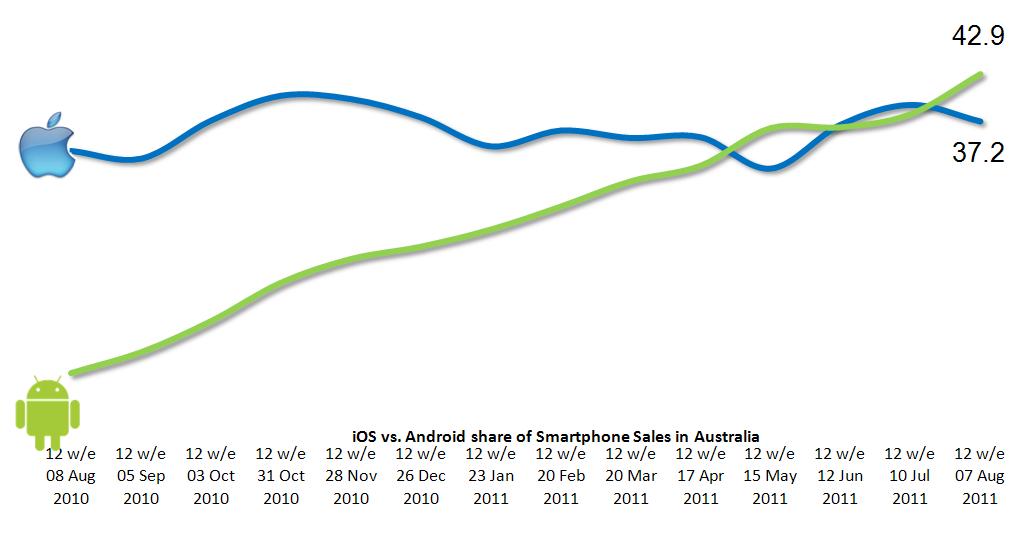Android winning mobile OS war in Australia

The Android-iOS war is reaching a tipping point in Australia, with the two mobile operating systems having traded their places as leader in the smartphone arena twice in the past six months, according to Kantar WorldPanel's ComTech data.

iOS vs. Android market share in Australia (Credit: Kantar WorldPanel)
Kantar, which examines smartphone OS market share every 12 weeks, saw iOS first overtaken by Android during its recording period in May, when the platform's local market share dropped to 31.5 per cent and Android's increased to 36.3 per cent.
iOS retook the leading position for the next two reporting periods, but was overtaken by Android again this month. According to the most recent figures, Android holds 42.9 per cent of Australian market share, while iOS holds 37.2 per cent.
Android's market share is even higher in other parts of the world. The average Android market share across the UK, US, Spain, Germany, France, Italy and Australia is 50.6 per cent.
Although Kantar claims that Australia has the highest level of smartphone penetration in the world, with 49 per cent of individuals owning a smartphone, this type of penetration looks to become the norm, with smartphone sales making up more than half of all mobile phone sales sold in the above-mentioned countries.
Users upgrading from non-smartphones were a key component of smartphone sales, and many of them are jumping on Android devices, according to the company: these users represented 63 per cent of Android gains in the past year. With the exception of Symbian, which loses smartphone users, customers do not appear to be switching operating systems once they have a smartphone.
Kantar also said that iPhone owners were also more likely to have chosen their device due to handset brand, while Android owners were more influenced by the operating system, the carrier and the cost of bills with that carrier.
Apple is just about to release the newest version of its iPhone, the iPhone 5, which may again tip the scales in its favour.